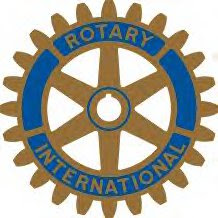 The Guest speaker at the November Breakfast meeting was Irakli Alasania, the Ambassador and Permanent Representative of Georgia to the United Nations. Prior to this assignment Ambassador Alasania had served as the Adviser to the President of Georgia on Conflict Resolution and is also the President's Special Representative to Georgian- Abkhaz talks. He received an International Law Degree from the Tbilisi State University in 1995.
The Guest speaker at the November Breakfast meeting was Irakli Alasania, the Ambassador and Permanent Representative of Georgia to the United Nations. Prior to this assignment Ambassador Alasania had served as the Adviser to the President of Georgia on Conflict Resolution and is also the President's Special Representative to Georgian- Abkhaz talks. He received an International Law Degree from the Tbilisi State University in 1995.The Georgian-Russian conflict was of particular importance since in 2005 the Rotary Club of New York went to Georgia to start the country's first Rotary club. Even then, it was a sensitive issue as to which Rotary district the club should belong. Should it belong to the Russian district or the Eastern-European District?
Our guest speaker returned from Georgia just two weeks ago, and it was his first trip back to his country since the August war with the Russian Federation. He pointed out since Georgian independence in 1993 there was always been conflict with South Ossetia and Abkhazia. Both regions have been under separatist control since that time, even though sixty-five percent of the population were Georgians and the minority was ruling the territory. The origins of this conflict date back to the break-up of the Soviet Union in 1987.
Since 2005, our guest speaker attempted to reach an agreement to end hostilities, but there was no political will to sign the agreement. In fact, it did seem that for the last year or so Russia was preparing for an invasion and established for full scale buildup on their shared border. Since last May there was escalation with a tit-for-tat shelling of villages in and more Russian troops brought troops were brought into the separatist areas.
While, the Georgian position is that the full-scale invasion is without question against the UN Charter, the Ambassador noted that lots of mistakes were made on Georgian side. For example, it has been reported that Georgia reportedly initiated a military offensive to regain control over its breakaway region of South Ossetia on Aug. 7. In response, Russia, sent in soldiers to defeat the Georgian troops. However, the government of Georgia never thought Russia would put “boots on the ground" of Georgian territory.
There is still speculation who “fired the first shot”. Therefore, to determine who started the aggression, both Russia and Georgia have agreed to provide information and cooperate for an international investigation. A diplomat team has been appointed to establish an inquiry. Swiss diplomat, Heidi Tagliavini, will lead an EU investigation into the origin and progression of the Georgia-Russia conflict. The 58-year-old career diplomat has extensive regional knowledge and experience. She was deputy head of the UN observer mission in Georgia (1998-1999), the Swiss ambassador to Bosnia and Herzegovina (2001-2002) and a member of the Organization for Security and Cooperation in Europe (OSCE)'s first assistance group to Chechnya (1995). A preliminary cease-fire mediated by the European Union was signed on Aug. 12, although fighting did not stop immediately. Only Russia and Nicaragua recognize the independence of South Ossetia and Abkhazia, another breakaway region of Georgia, whie most of the United Nations do not.
As a consequence of the war, there were several hundred ethnic based civilians killed by Russian soldiers. This year’s EU’s Rotating President Sorkazy established the Six Point Plan. The Sarkozy-Medvedev six-point plan stipulated renouncing the use of force, halting all military action, providing free access to humanitarian aid, the return of Georgian Armed Forces to their bases, the return of Russia's Armed Forces to their positions prior to combat, and the start of international discussions on the future status of South Ossetia and Abkhazia and on ways to ensure their security.
The Ambassador noted that the United Nations needs to monitor and investigate the incidents such as three police offers that were killed recently. Clearly, Georgia is a democratic state and we need to redefine our Turkey Armenians and ajibijan relationships. Also we need to Forge and institutional our relationship with the United States which has been very friendly since 1992 ,and has been very helpful in building our economy.
NATO membership of former Soviet satellites is one of the main irritants of Russia. However, Georgia believes that there are two principles that should be followed:
· Doors of NATO should be opened
· Every nation has a right on whom to align with. It is not up to Russian to block the integration of NATO.
The ambassador noted that it will take years to repair the Russian and Georgian relationship The Russians want naval bases. There are still 250,000 displaced persons for 15 years who want to go home to go back home.
The Ambassador pointed out that it will take years to repair the physical damage, and the Russian-Georgian relationship. In addition, investment confidence has been damaged which is essential to portray Georgia as a stable country in the eyes of the world's investors.









